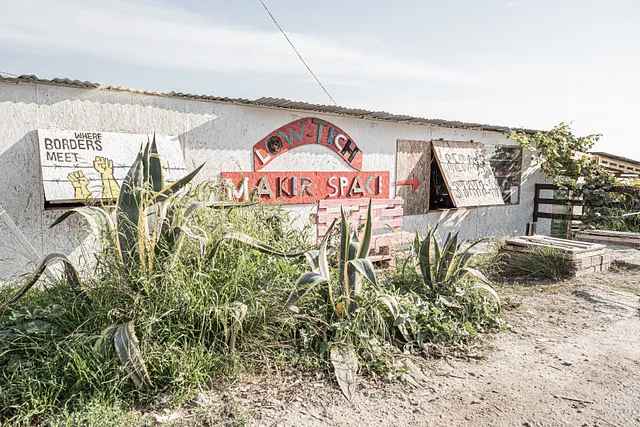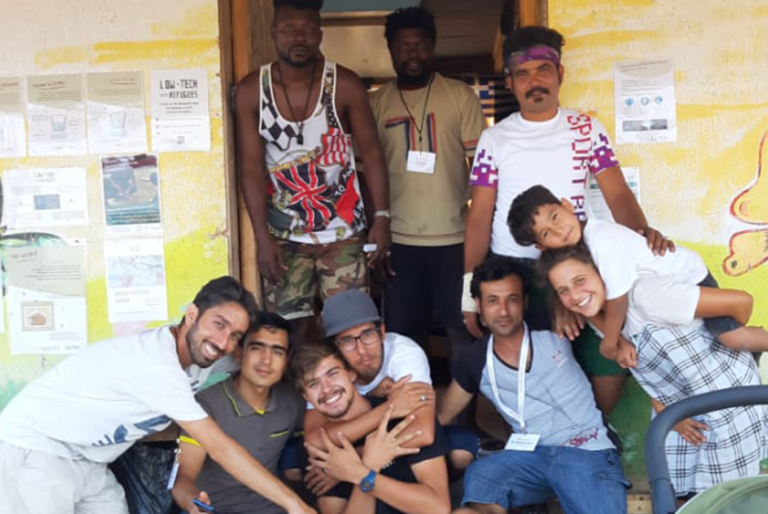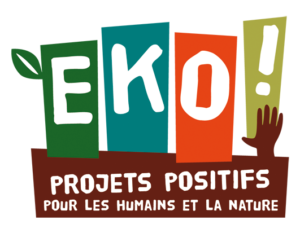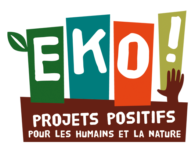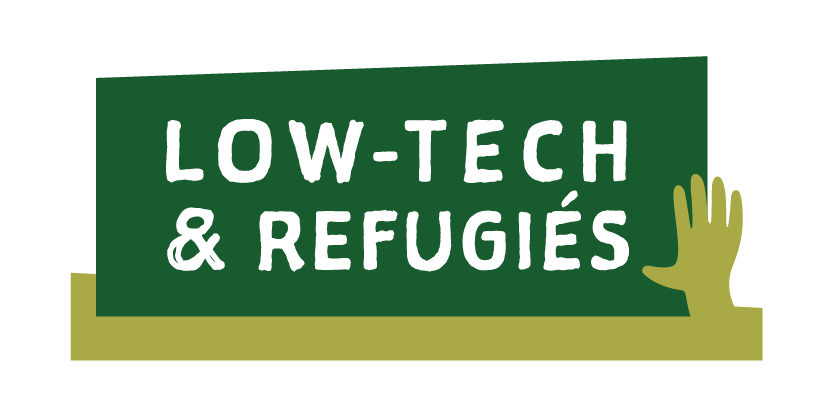
Objectifs de Low-tech & Réfugiés
Le projet Low-tech & Réfugiés améliore la résilience et l’autonomie des personnes exilées tout en contribuant au développement durable local, par la diffusion des savoir faire et systèmes low-tech et par l’insertion socio professionnelle vers des métiers écologiques.
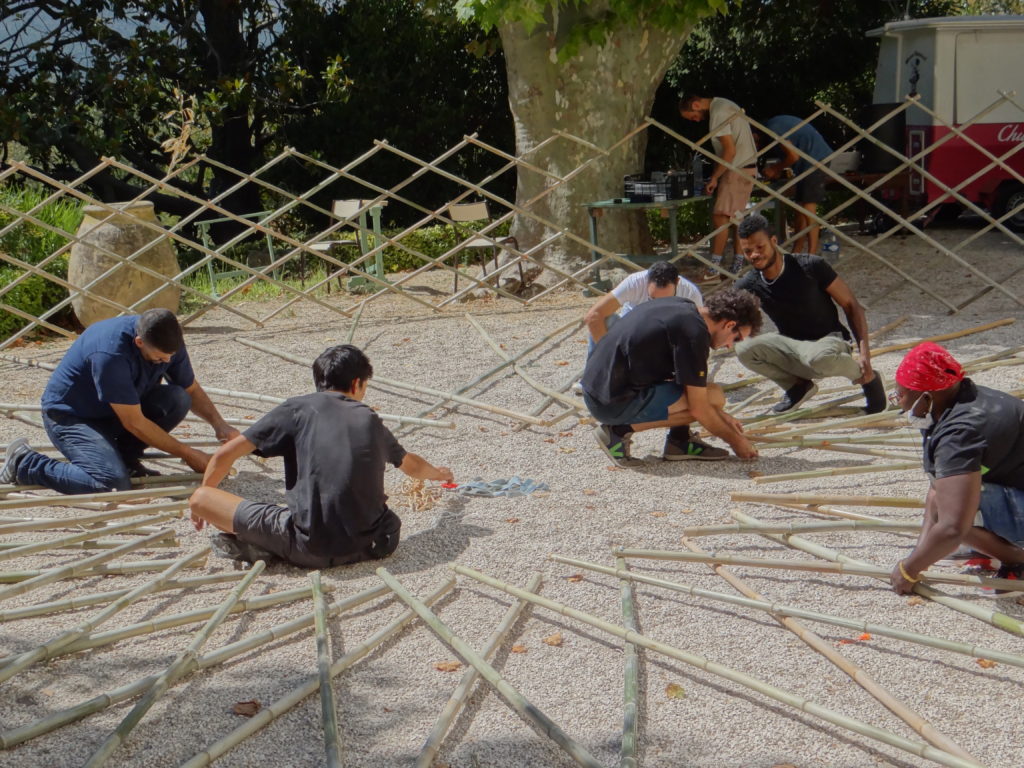
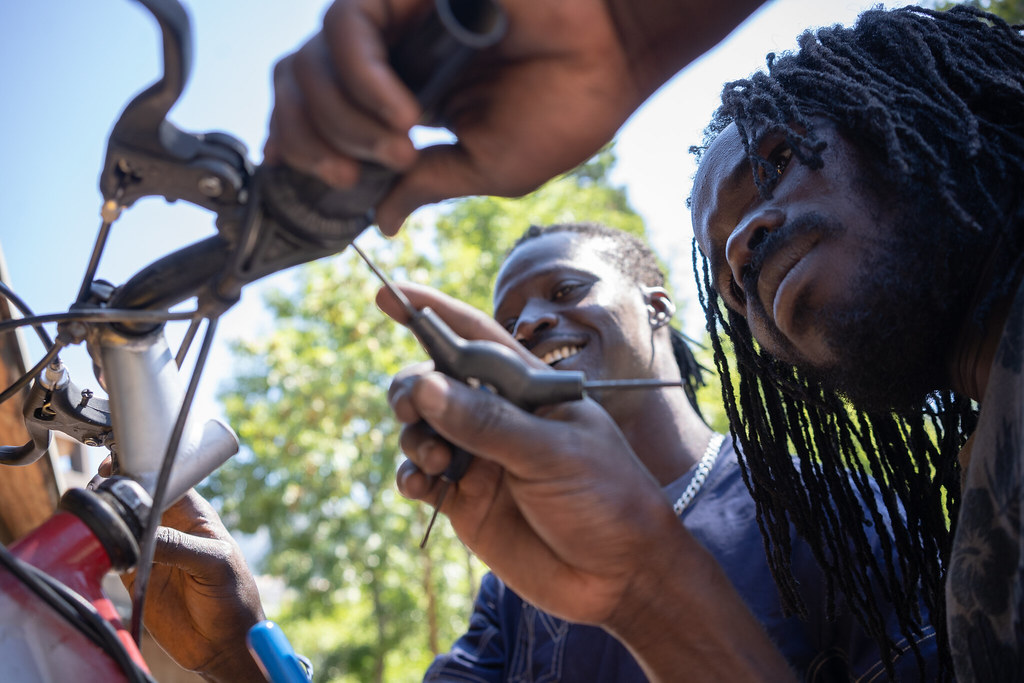
Contexte à la création du projet
La complexité des problématiques migratoires rend insuffisante les interventions humanitaires conventionnelles consistant à fournir des couvertures, nourriture, solutions d’hébergement, etc. En plus de répondre à leurs besoins physiologiques immédiats, les migrant.e.s ont besoin de se réapproprier leur devenir individuel et collectif. Le renforcement des savoir-faire low-tech des migrant.e.s a ce double impact.
Les low-technologies sont des solutions techniques simples répondant aux besoins essentiels (eau, production et conservation alimentaire, énergie, habitat, transport, etc.). Elles sont accessibles (économiquement et en terme de savoir-faire) et respectueuses de l’environnement (matériaux locaux, renouvelables ou de récupération, peu-énergivore, etc.). Il s’agit par exemple de cuiseurs économes en bois, d’éoliennes, de techniques agro-écologiques, etc. La low-tech est aussi une démarche, celle de faire mieux avec moins.
L'histoire du programme Low-tech & Réfugiés
Depuis 2018, le projet ‘Low-tech for Refugees’, devenu ‘Low-tech with Refugees’, agit pour favoriser l’autonomie des exilé.e.s. En s’appuyant sur l’expérience de ce programme mené à Lesbos, en Grèce (camps de Moria et KaraTepe), l’association EKO! réplique cette initiative en région Sud-PACA. La France correspond à une nouvelle étape dans le parcours migratoire des exilé.e.s et donc à de nouveaux besoins. Les activités menées à Marseille et Briançon visent principalement l’insertion socio-professionnelle des migrant.e.s via une découverte de métiers d’avenir. Le programme ‘Low-tech & Réfugiés – Sud-PACA’ propose aux migrant.e.s et aux habitant.e.s locaux des formations certifiantes, des ateliers de découverte des savoir-faire low-tech, l’accès à un lieu ouvert à tous et à toutes (Low-tech Makerspace) mutualisé avec nos partenaires ainsi qu’un appui à des lieux et acteur.rice.s de la transition écologique et solidaire du territoire.
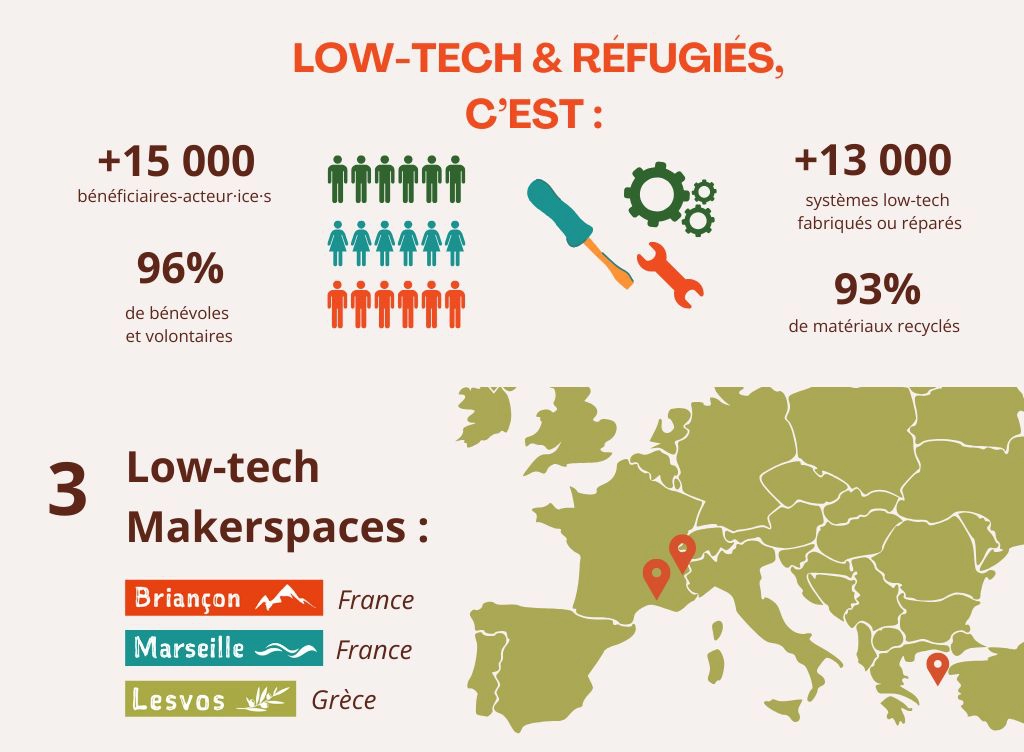
- A Briançon, territoire frontalier de haute-montagne, nous proposerons une dizaine d’ateliers de découverte des low-tech à un public de migrants et d’habitant.e.s locaux.ales : éco construction, gestion des déchets, travail du bois, réparation de vélos, systèmes énergétiques, maraîchage agroécologique, apiculture, assainissement, cueillette sauvage, etc.
- A Marseille, nous proposons plusieurs types d’ateliers et nous organisons des formations, de design en permaculture (CCP), de 2 semaines, certifiante, gratuite et multilingue, entre autres.
En parallèle de ces ateliers et formation, sur chacun des territoires, nous accompagnerons les bénéficiaires, individuellement et en petits groupes, sur la construction de leurs projets professionnels dans les domaines de l’artisanat, de la paysannerie et autres métiers d’avenir.
Les 6 volets d’actions de Low-tech & Réfugiés
- Des ateliers ouverts à tou.te.s de découverte des systèmes et savoir-faire low-tech (travail du bois, réparation de vélos, apiculture, éco-construction, cuiseurs solaires, rocket stove, compostage, etc.)
- Des formations professionnalisantes (conception permaculture, soudure, etc.)
- Des accompagnements socio-professionnels (suivis individuels, séances de groupe, etc.)
- Des Low-tech Makerspaces, des lieux de rencontre, réparation, réalisation, apprentissage, partage autour des low-techs et des emplois durables
- Des appuis aux acteurs de la transition solidaires et écologiques du territoire (structures d’accueil de migrant.e.s., fermes, etc.)
- La diffusion de systèmes low-tech via les ateliers, des tutoriels, etc.
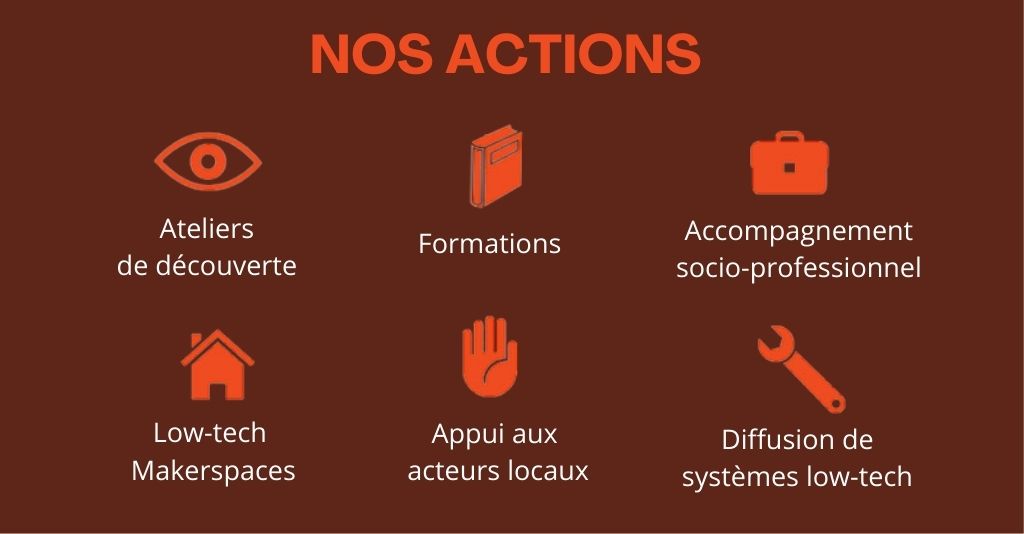
Où et pour qui ?
Lieux : Lesbos (camps de réfugiés, porte d’entrée de l’Union Européenne), PACA (Briancon, Marseille, etc : frontière franco-italienne, lieu d’ancrage)
Publics visés : personnes exilées (tous types de statuts), personne non exilées, organisations de solidarité et de la transition écologique du territoire
